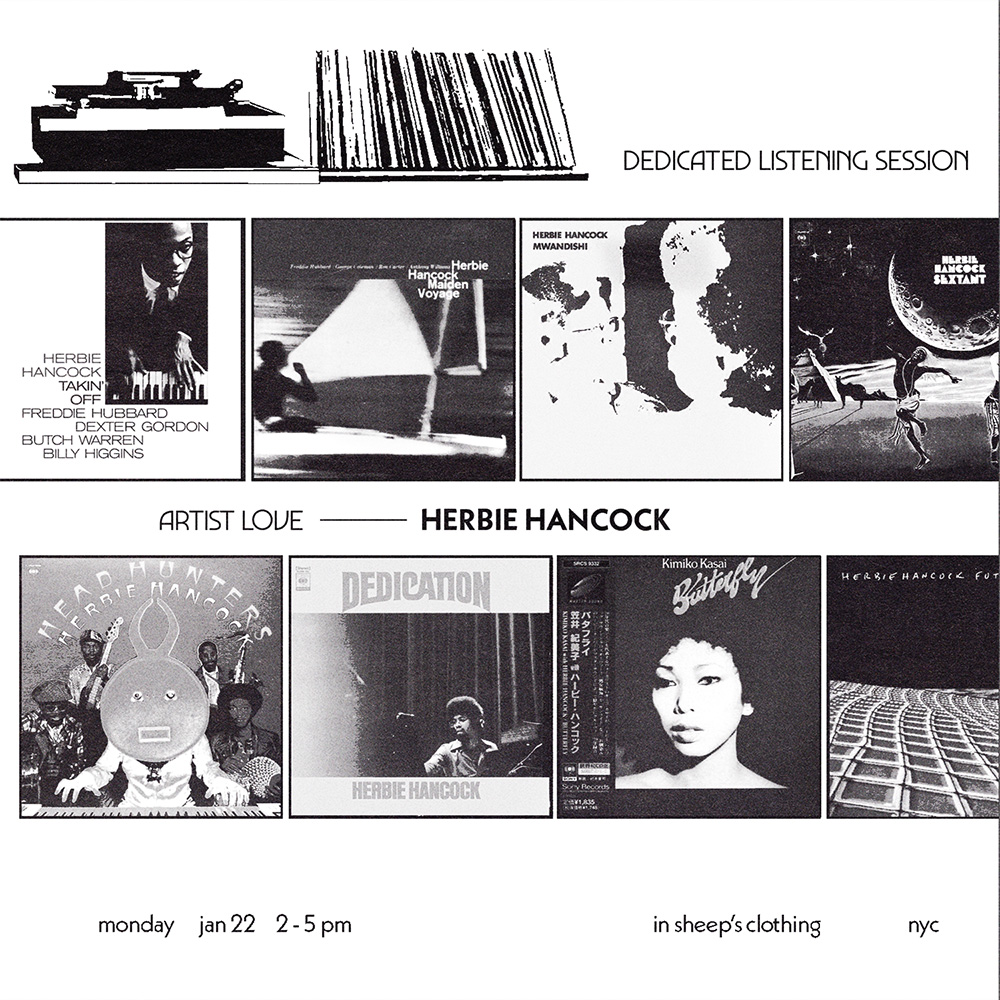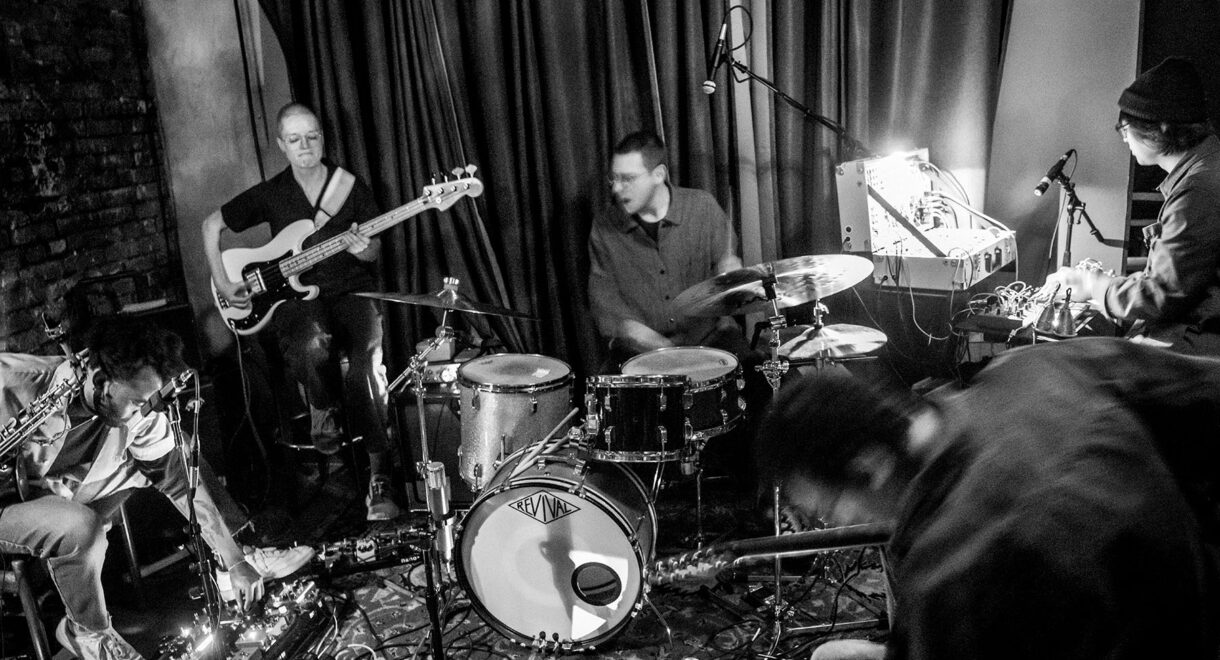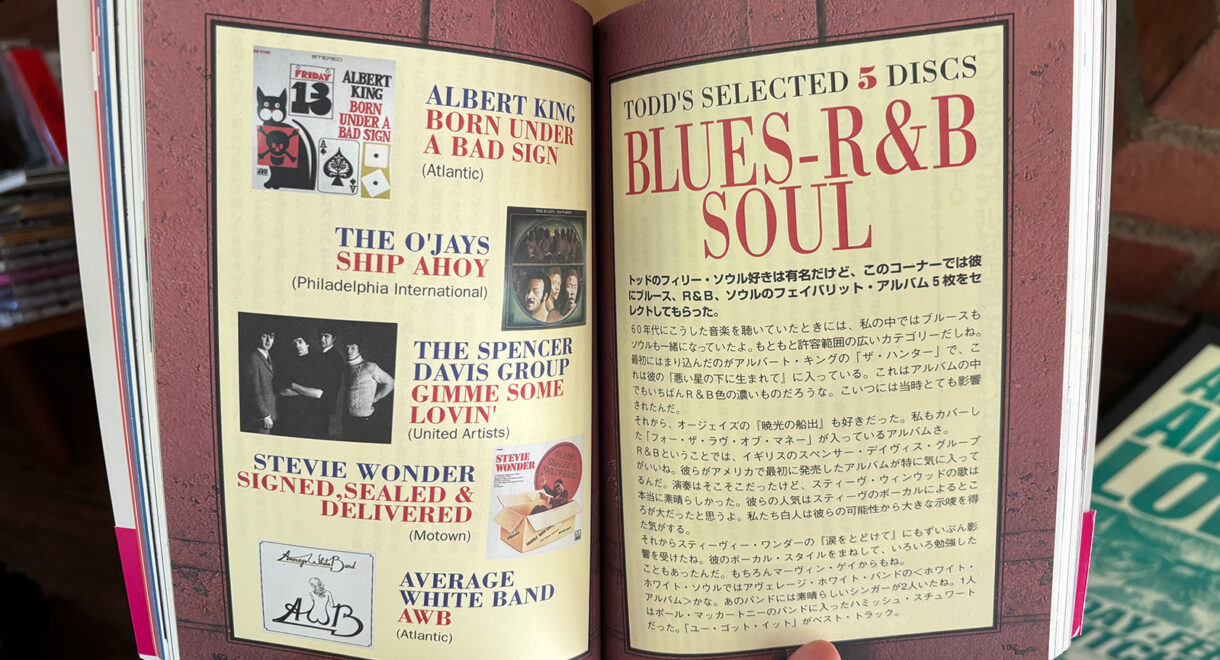In conversation with Small Medium Large, a new quintet from the burgeoning new West Coast jazz & improvised music scene. In 2018, LA-based jazz and post-rock guitarist Jeff […]
Worlds Collide: Herbie Hancock and Bill Laswell’s ‘Rockit’ and ‘Future Shock’ 40 Years Later
- Bill Laswell /
- Celluloid /
- Herbie Hancock /
- Jazz /
- Mwandishi

ISC NYC will feature Hancock’s classic records during today’s dedicated listening session.
It’s been a little more than 40 years since keyboardist Herbie Hancock, searching for new sounds and new ideas, entered a New York studio with bassist-producer Bill Laswell to record “Rockit.” Like Hancock, Laswell was a former Miles Davis band member. But unlike Laswell, Hancock was a little lost, professionally speaking.
After spending the early 1970s exploring and defining the sound of jazz-funk with Davis and on his own, which earned acclaim but not big sales numbers, Hancock had unsuccessfully chased a mainstream crowd for the rest of the decade. The result was a run of so-so disco pop albums that failed to reach the desired audience and, more important to his day-to-day, left Hancock deeply in debt to Columbia Records with only one album left on the contract.
Laswell, on the other hand, had found magical depth in the sounds coming out of New York, where rap, world beat and post-disco were colliding into a future music propelled by new ideas on sampling, scratching, rhythm and dancing. Best known at the time for his work with Material, Laswell was tapped into the entirety of the scene.
One locus of that movement was Celluloid Records, a French-financed label investing in the polyglot sounds coming out of Africa, Western Europe and America. And Celluloid’s New York connection was Laswell and his musical partner Michael Beinhorn, who had been releasing records as Material. Fates collided when Hancock, who was living in LA, was introduced to Material’s work by Hancock’s then manager, Tony Meilandt.
“I heard scratching as sort of an ambient kind of sound, but in a rhythmic fashion,” Hancock said in the 2005 documentary Possibilities. “I said, ‘I want to do something with that.’” Meilandt pitched Material on collaborating with Hancock by explaining to them the situation: “This is kinda like Herbie’s last shot, would you be interested?”
According to Hancock’s website, the keyboard player didn’t really connect with new sound when he first landed to check out the scene. “That’s when the Roxy was blazing,” Laswell recalled.
Notes Hancock’s site:
The converted roller disco at 515 W. 18th Street in Manhattan’s Chelsea district was where the Bronx came downtown, throwing the first hip-hop parties outside the borough.
“He had Herbie in the VIP room, which had these glass windows so you could watch whoever’s DJing,” Laswell continues. “And that night it was Bambaataa, D.ST, Jazzy Jay, Afrika Islam, Red Alert — that was the line-up — and I said, ‘Well, this is what’s happenin’ now.’ Herbie was like, ‘It looks like there’s a riot goin’ on.’ He didn’t get it.”
Still, the group created the track in New York and then flew to LA to mix it. Here’s how Hancock’s website describes the moment they knew they had a hit on their hands:
As soon as the song was mixed, they left for the airport with a reference copy on cassette. “We had some time to kill,” Laswell recalls, “so I said let’s stop at this speaker store. And we went inside and wanted to hear some different speakers. The guy in the store was going to play some bullshit rock stuff, so I said, ‘Here, play this. I want to hear how this sounds.’ And it was ‘Rockit.’” Laswell cranked up the volume. “When we played it,” he says, “there were all these kids from the neighborhood, and they gathered around us, and they’re like, ‘What the fuck is this?!’ I looked at D, and I was like, ‘That’s a hit record.’”
“Rockit” exploded into pop culture consciousness across 1984 after MTV, at the time notoriously averse to playing videos by Black artists, starting spinning it and after the nascent breakdance community turned it into a classic of the era.
Here are the song’s credits:
Bass – Bill Laswell
Bata – Daniel Ponce
Drum Machine [DMX], Electronic Drums [Synare], Programmed By [Mini-Moog Programming] – Michael Beinhorn
Synthesizer [Fairlight CMI, Rhodes Chroma, Clavitar, Mini-Moog, Dr. Click Rhythm Controller, E-mu 4060 Digital Keyboard], Vocoder [Sennheiser] – Herbie Hancock
Turntables – Grandmixer D. ST.
The album that featured the track — and got Hancock out of debt with Columbia — was called Future Shock. We’ll be featuring the album today (Jan. 22) at In Sheep’s Clothing NYC during our weekly dedicated listening hours. Running from 2-5 p.m., today’s session will focus on essential Herbie Hancock albums.

Sitting in a stack by the turntable awaiting your ears are:
Takin’ Off (1962)
Maiden Voyage (1965)
Mwandishi (1971)
Sextant (1973)
Headhunters (1973)
Dedication (1974)
Butterfly (with Kimiko Kasai) (1979)
Future Shock (1973)
Herbie Hancock Dedicated Listening Hours
When: 2-5 p.m. Monday
Where: 350 Hudson (Enter on King)










